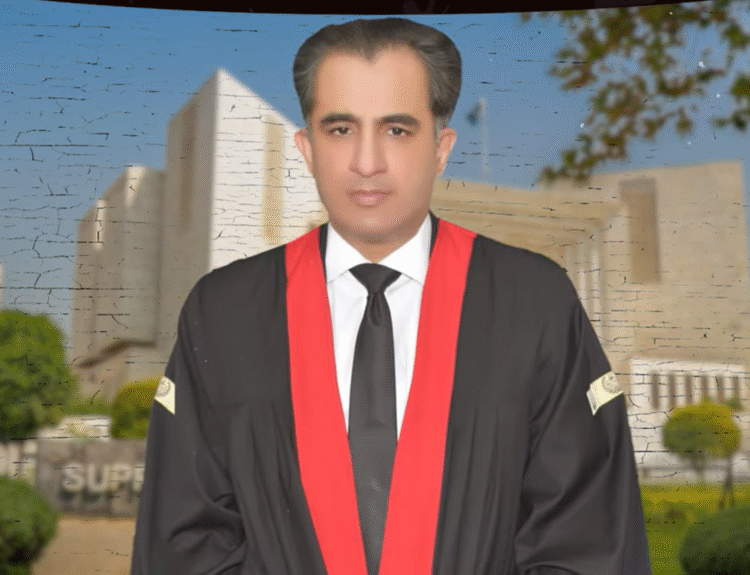Finance Minister Shaukat Tarin and Minister for Water Resources Moonis Elahi are among over 700 Pakistanis whose names appeared in Pandora Papers, an investigation uncovering financial secrets held by high-profile individuals across the world.
The Pandora Papers were released at 2130 hours local time. Other prominent persons include Senator Faisal Vawda, former finance minister Ishaq Dar’s son, Sharjeel Memon of Pakistan Peoples Party, the family of Minister for Industries and Production Khusro Bakhtiar, Senior Minister of Punjab Abdul Aleem Khan, and others. Some retired army officials, businessmen, and media owners, including Axact’s CEO Shoaib Sheikh, have also been named in Pandora Papers.
Meanwhile, Minister for Finance Shaukat Tarin clarified his role in the opening of certain offshore companies. He said the offshore companies were opened when Tariq Fawad Malik, who worked for the UAE’s Tariq bin Laden Company, had obtained formal permission to invest in Silk Bank, of which he was a major stakeholder.
Tarin clarified that no bank account of the companies was opened and no transaction took place. Later, when minds were changed regarding investment, the companies were closed between 2014 and 2015 saying Tariq bin Laden is a major Saudi investor, while Tariq Fawad Malik worked for Tariq bin Laden’s company in the UAE.
In this regard, Malik — a key figure in the Broadsheet case — said that in 2014, he was associated with a Middle Eastern company that wanted to invest in Tarin’s bank. He said that his company, wishing to invest in the bank, also held negotiations with the State Bank of Pakistan.
Malik’s remarks come in the backdrop of reports that he manages four offshore companies — Hamra Inc, Moonhen Inc, Seafax Inc, and Triperna Inc., — which are allegedly owned by Tarin along with three of his family members. These companies are said to have been registered in 2014 in Seychelles, Isle of Man.
The non-profit newsroom and journalist network based in Washington DC, International Consortium of Investigative Journalists (ICIJ), has received more than 11.9 million documents containing 2.94 terabytes worth of confidential information from service providers who helped set up and manage offshore companies and trusts in tax havens around the world.
The ICIJ shared the data with 150 media organisations and has led the broadest collaboration in journalism history. It took the ICIJ almost two years to organise the investigation that involved more than 600 journalists in 117 countries, making it the biggest-ever journalism partnership.
By comparison, for the Panama Papers, almost 400 journalists from 80 countries participated in the investigation. The Pandora Papers leak will uncover financial secrets of more leaders and public officials than the Panama Papers did and provide more than twice as much information about the ownership of offshore companies, reports suggest.
The Panama Papers were based on the data of a Panama-based law firm called Mossack Fonseca that revealed offshore holdings of 140 politicians, public offshore and sports stars. Those documents were obtained by the German newspaper, Süddeutsche Zeitung, which contained records dating back 40 years.
The Pandora Papers investigation is bigger in size and revelations about politicians and public officials are also far more than what previously came to public attention.
What is the Pandora Papers?
Terming ‘Pandora Papers’, an offshore data tsunami, The International Consortium of Investigative Journalists disclosed through its website https://www.icij.org/
The Pandora Papers investigation is the world’s largest-ever journalistic collaboration, involving more than 600 journalists from 150 media outlets in 117 countries.
The investigation is based on a leak of confidential records of 14 offshore service providers that give professional services to wealthy individuals and corporations seeking to incorporate shell companies, trusts, foundations and other entities in low- or no-tax jurisdictions. The entities enable owners to conceal their identities from the public and sometimes from regulators. Often, the providers help them open bank accounts in countries with light financial regulation.
The 2.94 terabytes of data, leaked to ICIJ and shared with media partners around the world, arrived in various formats: as documents, images, emails, spreadsheets, and more.
The records include an unprecedented amount of information on so-called beneficial owners of entities registered in the British Virgin Islands, Seychelles, Hong Kong, Belize, Panama, South Dakota and other secrecy jurisdictions. They also contain information on the shareholders, directors and officers. In addition to the rich, the famous and the infamous, those exposed by the leak include people who don’t represent a public interest and who don’t appear in our reporting, such as small business owners, doctors and other, usually affluent, individuals away from the public spotlight.
While some of the files date to the 1970s, most of those reviewed by ICIJ were created between 1996 and 2020. They cover a wide range of matters: the creation of shell companies, foundations and trusts; the use of such entities to purchase real estate, yachts, jets and life insurance; their use to make investments and to move money between bank accounts; estate planning and other inheritance issues; and the avoidance of taxes through complex financial schemes. Some documents are tied to financial crimes, including money laundering.
Pandora Papers may open ways to transparency in financial practices: Fawad
Federal Information Minister Fawad Chaudhry hoped that the Pandora Papers, expected to expose the financial secrets of the global elite, will strengthen Prime Minister Imran Khan’s stance against money laundering.
In a tweet on Sunday, the information minister said if the Pandora Papers, like the Panama Papers, are going to shed light on how money is laundered from poor countries to tax havens then this will further reinforce Prime Minister Imran Khan’s stance against money laundering.
He said that the premier has urged the international community multiple times to discourage the practice of money laundering through which the wealth stolen from poor countries is parked in rich states.
The information minister hoped that like the Panama Papers, these leaks will also open new ways to ensure transparency in financial practices and will help in the fight against corrupt practices.
The ICIJ’s major investigation titled: “The Pandora Papers”, is said to be the result of 600 journalists in 117 countries studying for months roughly 11.9 million documents that leaked from the offshore environment. The countdown has begun as the names of several Pakistanis are said to be on the Pandora Papers.
Late on Saturday, the ICIJ announced that it is going to release the “most expensive expose of financial secrecy yet”. In 2016, ICIJ had released the Panama Papers, which took the world by storm and eventually led to the downfall of governments, including that of Nawaz Sharif.
The mega research into the financial world’s hidden secrets is expected to explain what some of the rich in the world did to hide their wealth and evade taxes from the states. The Panama Papers was a giant leak of more than 11.5 million financial and legal records exposing a system that enables crime, corruption and wrongdoing, hidden by secretive offshore companies.
Reportedly, the Pandora Papers is a result of the new massive leak of financial files that exposes how the global elite transfers money to tax havens by secret companies. It is said that the investigation will show the tax evasion of hundreds of former and current world leaders, businessmen, celebrities, fugitives and judges.




